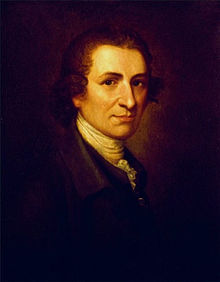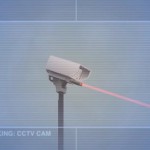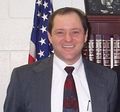 An interview I did on behalf of LEAP this week for the newsletter of the UK campaign, Release.
An interview I did on behalf of LEAP this week for the newsletter of the UK campaign, Release.
Release, run by the indefatigable Niamh Eastwood, does excellent work providing legal advice about drug issues, and campaigning for fairer and more compassionate drug laws.
The interview appeared in the campaign’s newsletter, “TalkingDrugs”.
Here’s the link, and here’s the text:
Q1 What led you into thinking that current drug policies on illicit drugs were failing?
My journey began when I was working as an intelligence officer for MI5 in the 1990s. One of my roles was investigating terrorist logistics and working closely with UK Customs. I learned then that trying to stop the flow of illicit material into the UK (whether drugs, weapons, or people) is like looking for a needle in the proverbial haystack. Plus there is a huge overlap between the funding of organised crime and terrorist groups.
Over the last decade I have become a writer, commentator and public speaker on a variety of inter-connected issues around intelligence, the war on terror, whistleblowers, policing, and civil liberties. To me, the war on drugs meshes very closely with all these topics. Three years ago I was approached by LEAP to become a speaker, and then in March this year I became a member of the international board and also the Director of LEAP Europe in order to consolidate the organisation’s work here.
Q2 Do you think that there are barriers to police officers being honest about the effectiveness of their actions to combat the trade in illicit drugs and is the greater disquiet amongst those involved in law enforcement about current policies than is popularly perceived ?
Yes, absolutely, and it’s not just amongst the police but also the wider law enforcement community.
LEAP supporters, approaching 100,000 in over 90 countries around the world, include judges, lawyers, prison governors, customs and intelligence officers, and former drug czars. Within all these professions there is a tacit understanding that you toe the conventional line. In my experience, most people go into this type of work hoping not only to have an interesting job, but also to do some good and make a difference. Many then see the social fall-out, or that friends, family or community are affected by the drug wars, and many serving officials do question what it is all about and what it is really achieving.
However, they are there to do a job, which is upholding and applying the law. The cultural pressure within such groups can make it extremely difficult on many levels for them to speak out.
Any change to the international and national drug laws will have to come from the politicians within the UN and nationally. LEAP increasingly contributes to the political debate and is building a groundswell of support internationally. Most people today will know someone who has at least tried a currently illegal drug. They also instinctively know this is mere social experimentation, relaxation or, at worst, a health problem. And penalisation, imprisonment and a criminal record exacerbates rather than helps the situation.
Q3 Does the policing of drug possession impact the effectiveness of policing generally and what benefits do you think could stem from ceasing to use law enforcement to attempt to discourage drug use?
There are multiple strands to this issue: the diversion of police resources, the additional crime caused by prohibition that is not dealt with successfully, the diversion of resources from harm reduction programmes, the criminalisation of what are essentially health issues, and the disrepute that results for law enforcement.
The policing of drug possession takes away vast resources from investigating other crimes such as burglary, rape and murder. Yet it is largely pointless – those with a drug dependency need health interventions, and there will always be replacements for any low-level dealers who are arrested and imprisoned. If you arrest and convict a rapist, he will not be on the streets committing more rapes; but if you catch a drug dealer, you just create a job vacancy for which many will compete in ever more violent ways for a slice of an incredibly lucrative market.
The UK anti-prohibition advocacy group, Transform, estimates that even if just cannabis were legalised in the UK, an additional $1.6 billion would flow into the British economy every year. While tax raised on a controlled and regulated cannabis trade is predicted to provide the bulk of this ($1.2 billion), $170 million would be saved from law enforcement, $155 million from the justice system, and $135 million from the prison system.
In the current economic situation, can the UK afford not to consider alternatives to the current drug war?
Also, as we have seen since the decriminalistion laws in Portugal since 2001 and Switzerland since 1994, the “peace dividend” by ending the war on drugs would not only see a drop in property crimes (about 50% of which are committed to fund drug dependencies), it could also be used to finance and extend harm reduction programmes. As we have seen in the case of tobacco across the West, we do not need to ban a substance to reduce its use; education and treatment are far more effective.
Finally, illegal drugs are available to anyone who wants to buy them on the streets of the UK. The increasing militarisation of the police to fight the war on drugs, the breakdown of civil liberties for the same reason (mirroring the war on terror), and the widespread flagrant flouting of the drug laws by large numbers of the population, thereby “making an ass of the law”, has led to a breakdown of trust and respect between the police and the policed. One of LEAP’s aims is to rebuild this trust, this social contract.
Q4 The impact on the safety of law enforcement personnel of the ‘war on drugs’ should be an issue for other membership organisations representing the sector, will you be reaching out to them to encourage campaigning on the issue?
Safety is certainly an issue, although we have been more fortunate in Europe than our colleagues in the USA, where the more prevalent gun culture leads to many more law enforcement deaths. That said, gang violence is on the rise across Europe where organised crime gangs fight increasingly violent turf battles.
Mexico has been one of the worst hit countries in the world. Since the ramping up of the war on drugs almost six years ago, over 62,000 men women and children have been tortured and murdered in that country, and many of them had no involvement whatsoever in the drugs trade. In fact, LEAP USA has just successfully participated in the Mexican Caravan for Peace, a group of activists and families highlighting the tragedy, that toured across the USA for a month to raise awareness and finished with a rally in Washington last week.
The increasing violence of the drugs trade and the militarisation of the response should be of concern to all law enforcers, membership organisations and allied groups working in the drugs sector. We need to think urgently about how to avoid a similar spiral of violence in Europe. LEAP is happy to reach out to such organisations to develop a more humane solution.
Q5 How would you like to see LEAP in Europe develop and will you be looking to lobby European policy makers in Brussels?
There are already LEAP speakers across most European countries. We in LEAP see the organisation’s primary goal as educational. We shall be working to build up speaking engagements for a wide variety of groups and audiences, including the political sector, as well as strengthening our media exposure. We recognise the valuable work Release and other NGOs and advocacy groups are already doing across Europe, and hope that you will see that we offer a unique voice and pool of expertise that can be used to strengthen your work.
It is wonderful that so many organisations and indeed governments around the world (particularly in Europe and Latin America) are now focusing on exploring alternatives such as decriminalistion and harm reduction programmes. Based on our professional experience, LEAP argues that we need, at very least, to consider the next logical step in the chain: controlled regulation of the drug market as we currently do with alcohol and tobacco.
Decriminalisation may help to reduce the harm for the drug users, but leaves the drug trade in the hands of increasingly violent global organised crime networks. Only by removing the profit motive from this illicit trade can we end the involvement of the criminal element and all the attendant violence, and work to make the world safer for all.













 Richard Van Wickler, a currently-serving jail superintendent who will be representing Law Enforcement Against Prohibition (
Richard Van Wickler, a currently-serving jail superintendent who will be representing Law Enforcement Against Prohibition ( Former Chicago drug prosecutor James Gierach, recently a featured speaker at a conference in Mexico City last month attended by the first lady of Mexico and the former presidents of Colombia and Brazil, says, “The unending cycle of cartel violence caused by the prohibition market has turned a steady trickle of former elected officials criticizing prohibition into a flood of sitting presidents, business leaders and law enforcement officials calling for an outright discussion about legalization. It’s time for the U.S. and the U.N. to acknowledge that legal control, rather than criminalization, is a much better way to manage our drug problems. The world can have either drug prohibition, violence and corruption or it can have controlled drug legalization with safe streets and moral fabric, but it can’t have both.”
Former Chicago drug prosecutor James Gierach, recently a featured speaker at a conference in Mexico City last month attended by the first lady of Mexico and the former presidents of Colombia and Brazil, says, “The unending cycle of cartel violence caused by the prohibition market has turned a steady trickle of former elected officials criticizing prohibition into a flood of sitting presidents, business leaders and law enforcement officials calling for an outright discussion about legalization. It’s time for the U.S. and the U.N. to acknowledge that legal control, rather than criminalization, is a much better way to manage our drug problems. The world can have either drug prohibition, violence and corruption or it can have controlled drug legalization with safe streets and moral fabric, but it can’t have both.” Also attending the conference on behalf of
Also attending the conference on behalf of 









